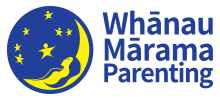These results are valuable for you if you work with migrant families and their children, community groups, schools and government organisations.
About the Project
This research aims to better understand the parenting practices of new migrants in Auckland’s North Shore communities.
Its primary use is to assist Whānau Marama Parenting, a parenting programme provider in Glenfield, Auckland, to understand whether they are meeting the needs of this group in terms of culturally appropriate information, support, and positive parenting skills.
How we did it
This project was a research collaboration between Whānau Marama Parenting, Point Research and a team of 21 volunteer peer-to-peer interviewers from new migrant communities on Auckland’s North Shore.
Each collaborative partner bought their own strengths and skills to the project.
Research Method
All volunteers participated in a one-day training workshop, which covered the basics of empathy interviewing such as establishing trust and building rapport, active listening, responses, reactions and restatements as well as an introduction to research ethics and information on what to do in the event of disclosure.
A volunteer coordinator from Whānau Marama Parenting was available throughout the project to assist volunteers with any queries, issues or questions.
Each volunteer interviewed between one and three new migrants from their personal and/or professional networks. Interviewees were required to be parents, and to have been in Aotearoa New Zealand for five years or less).
Data were recorded in an interview booklet in the language, and then translated and transferred onto an insight mining worksheet.
Project documentation, such as consent forms, interview guides and participant information sheets were translated where necessary.
Project Ethics
One of the key aims of this project was to understand the different methods of discipline used by new migrant parents and their understanding about New Zealand legislation regarding physical discipline. Engaging new migrant parents in this research project meant there were several ethical issues that needed to be considered.
Some new migrant families speak little to no English and we were mindful that some may have not been aware of New Zealand legislation around child abuse and neglect. Sharing their stories during interviews may have exposed child abuse and neglect that parents are unaware is illegal in Aotearoa New Zealand.
We were also aware that discussing parenting practices may have raised issues around family violence and child abuse and neglect, including participants’ own experiences of abuse.
The Results
1- One of the key aims of this project was to understand the different methods of discipline used by new migrant parents and their understanding about Aotearoa New Zealand legislation regarding physical discipline. Most migrant parents we talked to use positive methods of discipline.
2- The qualities in their children most prized by the migrant parents we spoke to are obedience, respect, politeness and help around the house. They sometimes find it difficult to deal with behaviours that don’t reflect these qualities.
3- There is a widely held perception among the migrant parents we talked to that the typical parent in Aotearoa New Zealand is positive and loving. For many, this is a good fit with their own parenting practices and aspirations.
4- Aotearoa New Zealand means “freedom” and “independence” for children. For the migrant parents we interviewed, this is both aspirational and problematic.
5- Many of the parents we spoke with have adopted a parenting style which is different to their own parents. This appears to be both a generational and cultural response to different parenting values.
6- Most of the parents we spoke to have at least one person they can turn to when they need help or information about parenting. There are, however, a small but significant minority who are isolated and struggling.
7- Many of the parents we interviewed struggle to understand the Aotearoa New Zealand education system and as a result some question the value of educating their children in Aotearoa New Zealand.
